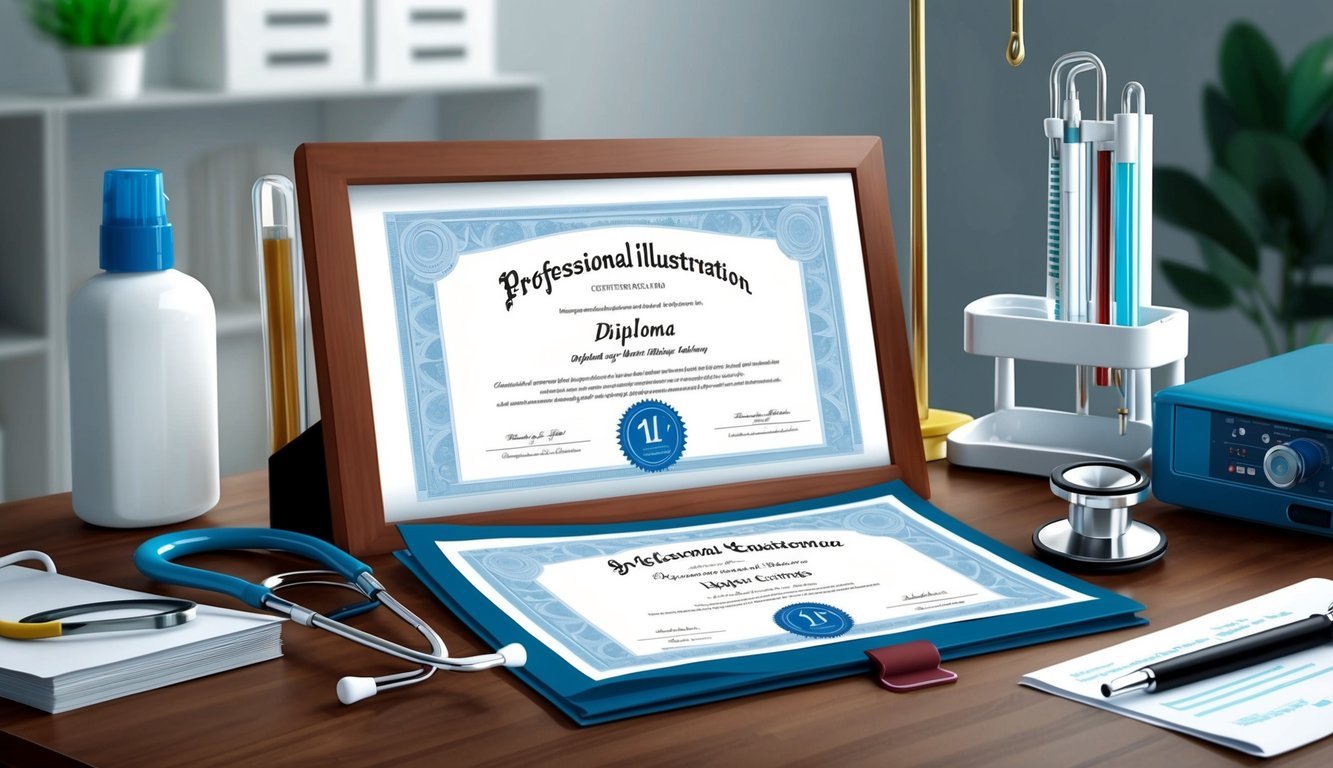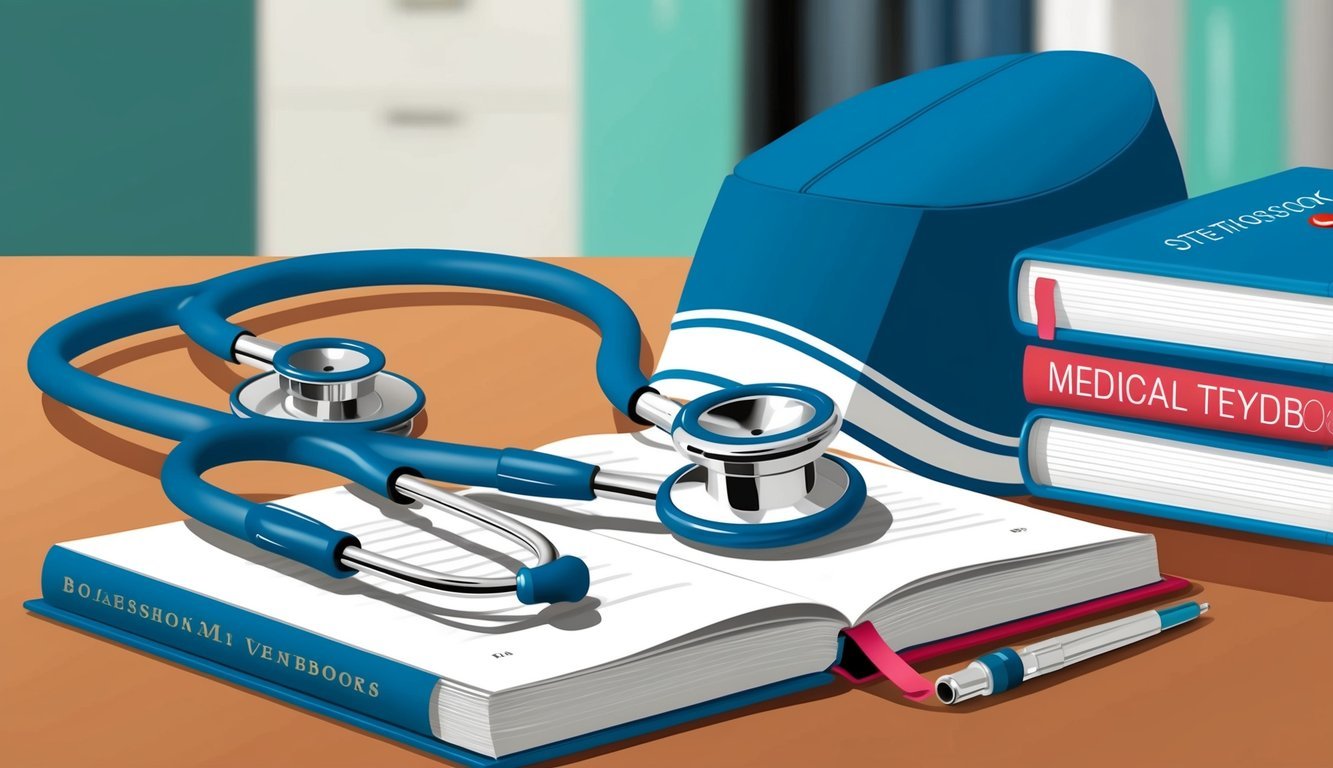A Bachelor of Science in Nursing (BSN) is a vital step for anyone looking to pursue a career in healthcare as a registered nurse.
This degree not only prepares you with the essential skills for patient care but also enhances your opportunities for career advancement and specialization in nursing.
With a BSN, you will gain a comprehensive education that combines both nursing theory and practical experience, making you well-equipped to meet the complexities of modern healthcare.
In recent years, the demand for BSN-educated nurses has increased significantly, as many healthcare facilities now prefer or require this level of education for their nursing staff.
Enrolling in a BSN program means engaging in a curriculum that emphasizes critical thinking, leadership, and patient-centered care.
You will learn through a blend of classroom instruction and hands-on clinical practice, which is crucial for developing your competencies as a nurse.
Pursuing a BSN can also serve as a foundation for further nursing education, including master’s and doctoral degrees.
This pathway opens the door to advanced practice roles, such as nurse practitioners and nurse educators, allowing you to shape the future of nursing.
Consider exploring programs that align with your career goals, such as the offerings available at institutions like Southern New Hampshire University and University of Texas.
Pathways to a BSN
Pursuing a Bachelor of Science in Nursing (BSN) offers several pathways tailored to various educational backgrounds and career goals.
Each of these pathways presents unique features, benefits, and requirements for aspiring nurses.
Traditional BSN Program
The Traditional BSN Program is designed for students starting their nursing education from scratch.
This program is typically a four-year program that provides comprehensive training in nursing theory, clinical practice, and patient care.
Key Features:
- Duration: Approximately 4 years
- Curriculum: Foundational courses in anatomy, nutrition, and psychology, coupled with nursing-specific subjects.
- Clinical Experience: Hands-on training in healthcare settings under professional supervision.
This pathway often suits high school graduates or individuals new to the nursing field.
Given the structure, you can build a strong foundation necessary for various nursing roles.
Accelerated BSN Program
The Accelerated BSN Program targets those who already hold a bachelor’s degree in another field.
This program is intensive and typically lasts between 12 to 18 months.
Key Characteristics:
- Duration: 12 to 18 months
- Eligibility: Applicants must possess a non-nursing bachelor’s degree.
- Curriculum Focus: Condensed coursework covering essential nursing principles and hands-on clinical practice.
With a rigorous schedule, this path allows you to leverage your previous education while expediting your journey to becoming a nurse.
It’s an efficient option for career changers who want to enter the nursing profession quickly.
RN to BSN
The RN to BSN pathway is for registered nurses (RNs) who want to obtain a bachelor’s degree while working.
This program often uses a flexible format, including online courses.
Highlights:
- Duration: Typically 1 to 2 years, depending on transfer credits.
- Target Audience: Current registered nurses with an Associate Degree in Nursing (ADN).
- Format: Many programs offer online options, accommodating your work schedule.
This option enhances your qualifications and may open doors to advanced practice roles.
Employers frequently prefer RNs with a BSN due to their expanded skill set, which includes leadership and critical thinking.
ADN to BSN
Transitioning from an Associate Degree in Nursing (ADN) to a BSN is a popular route for nurses aiming to advance their careers.
This pathway typically allows you to build upon your existing knowledge.
Program Aspects:
- Duration: Usually 1 to 2 years.
- Prerequisites: Must hold an ADN and typically a nursing license.
- Transfer Credits: Many programs accept credits from your ADN program, decreasing the total course load.
This pathway is beneficial if you seek to enhance your clinical competencies, leadership skills, and job opportunities.
Pursuing a BSN can significantly improve your long-term career prospects in nursing.
Curriculum and Clinical Training

The curriculum for a Bachelor of Science in Nursing incorporates essential core classes and specialized courses, along with significant clinical training.
This combination prepares you to handle various healthcare situations effectively.
Core Nursing Classes
Core nursing classes typically include fundamental subjects essential for developing foundational nursing skills.
Key courses cover areas such as:
- Anatomy and Physiology: Understanding body systems is crucial for effective patient care.
- Pharmacology: Knowledge of medications ensures safe administration and patient education.
- Nursing Fundamentals: This course introduces basic nursing practices, patient assessment, and communication techniques.
These classes set the groundwork for your nursing practice, providing you with the knowledge required to analyze and address patient needs.
You will also engage in research methods and ethics, which prepare you for the complexities of healthcare settings.
Specialized Nursing Courses
As you progress, specialized nursing courses will delve deeper into specific fields.
Common specialized areas include:
- Pediatric Nursing: Focuses on the care of infants and children.
- Mental Health Nursing: Addresses psychological and emotional needs of patients.
- Community Health Nursing: Emphasizes public health and preventative care strategies.
These courses expand your skill set, enabling you to tailor your approach based on patient demographics and needs.
You will learn to navigate diverse healthcare settings and develop critical thinking skills to address nuanced clinical situations.
Clinical Hours and Rotations
The curriculum also includes clinical hours and rotations, which are a vital aspect of your nursing education.
During these experiences, you will gain hands-on exposure in real-world healthcare settings.
Your program will likely require a specific number of clinical hours, often ranging from 600 to 1,000.
You will rotate through various specialties, including:
- Medical-Surgical Units
- Emergency Departments
- Pediatrics and Maternity Wards
These rotations allow you to apply theoretical knowledge in practice.
Engaging directly with patients under the supervision of experienced nurses will enhance your confidence and competence in delivering care.
This practical training solidifies your learning and prepares you for the NCLEX-RN exam.
Licensure and Certification

Obtaining proper licensure and certification is crucial for your career as a nurse.
This section focuses on the NCLEX-RN exam and the ongoing education options that will keep your qualifications up-to-date.
NCLEX-RN Exam
To become a Registered Nurse (RN), you must pass the NCLEX-RN exam.
This standardized test evaluates your knowledge and capabilities in nursing.
It covers crucial topics like patient care, safety, and health promotion.
Key points of the NCLEX-RN:
- Eligibility: You must graduate from an accredited nursing program.
- Exam Structure: The test includes a mix of multiple-choice and alternative question formats.
- Registration: Register through the National Council of State Boards of Nursing (NCSBN).
After passing, you will apply for your RN licensure in your state.
Licensure ensures you can practice legally and provides credibility in healthcare settings.
More details can be found at the NCSBN.
Continued Education Options
After achieving licensure, continuing education is vital for your growth and compliance with state requirements.
You can engage in various programs to enhance your skills.
Options for continuing education include:
- Workshops: Short classes focused on specific skills or updates in nursing practice.
- Conferences: Annual events that offer insights into new research, technologies, and methodologies.
- Advanced degrees: Consider pursuing a Master of Science in Nursing (MSN) or a Doctor of Nursing Practice (DNP) for further opportunities.
Most states require RNs to complete a certain number of continuing education hours every few years.
Engaging in these programs not only keeps you compliant but also opens doors for advanced roles in healthcare.
For more information on CE requirements, visit NurseJournal.org.
Career and Specialization Opportunities
A Bachelor of Science in Nursing (BSN) opens the door to numerous career paths and specialization options.
You’ll find opportunities in various healthcare settings that cater to your interests and strengths.
Nursing Career Paths
As a BSN graduate, you can pursue numerous roles, including:
- Registered Nurse (RN): Provides direct patient care in hospitals, clinics, and other settings. This is the most common path for BSN holders.
- Clinical Nurse: Focuses on delivering specialized care in areas such as pediatrics, geriatrics, or emergency medicine.
- Nursing Leadership: Opportunities exist in management roles, where you’ll supervise nursing staff, coordinate care, and improve patient outcomes.
According to the U.S. Bureau of Labor Statistics, the job outlook for RNs is projected to grow significantly, with around 1.9 million new job openings yearly through 2033.
The average salary for RNs is notable, making this a sought-after position.
Advanced Nursing Degrees
Pursuing an advanced degree can enhance your nursing career potential.
Notable options include:
- Master of Science in Nursing (MSN): This degree allows you to specialize in areas such as nurse practitioner, clinical nurse specialist, or nursing administration.
- Doctor of Nursing Practice (DNP): The highest nursing degree focuses on advanced clinical practice or leadership. With a DNP, you’ll be prepared for roles in healthcare policy, education, and high-level clinical practice.
Specialized roles often come with higher salaries and greater job security.
For instance, psychiatric mental health nurse practitioners (PMHNPs) report competitive compensation, adding to your motivation for further education.
Costs and Considerations for Prospective Students
As you consider pursuing a Bachelor of Science in Nursing (BSN), understanding the associated costs and financial options is critical.
This will help you make informed decisions as you prepare for your nursing career.
The following sections will examine the expenses you can expect and the financial aid opportunities available to you.
Evaluating BSN Program Costs
The cost of a BSN program can vary significantly depending on several factors, including the institution’s location, program structure, and whether it is an accelerated program.
Tuition for a traditional BSN typically ranges from $30,000 to $70,000 for the duration of the program.
| Type of Program | Estimated Cost |
|---|---|
| Traditional BSN | $30,000 – $70,000 |
| Accelerated BSN | $40,000 – $90,000 |
| Online BSN | $20,000 – $50,000 |
Keep in mind that additional fees, such as textbooks, lab supplies, and clinical fees, can add an extra $1,500 to $5,000.
Choose a program accredited by organizations like the CCNE to ensure quality education, which may also affect costs.
Financial Aid and Scholarships
Various financial aid options can help manage the financial burden of your BSN education.
These include scholarships, grants, and low-interest loans.
Many schools offer merit-based or need-based scholarships that can cover part of your tuition.
- Federal Grants: For example, Pell Grants do not require repayment.
- Scholarships: Offered by organizations like the American Association of Colleges of Nursing (AACN).
- Loans: Federal and private loans can help finance your education, but you need to carefully consider repayment plans.
Explore options through your chosen school’s financial aid office.
Additionally, consider applying for scholarships specifically aimed at nursing students, which can significantly reduce costs.
For more detailed information on financial aid opportunities, visit Nurse.org.

